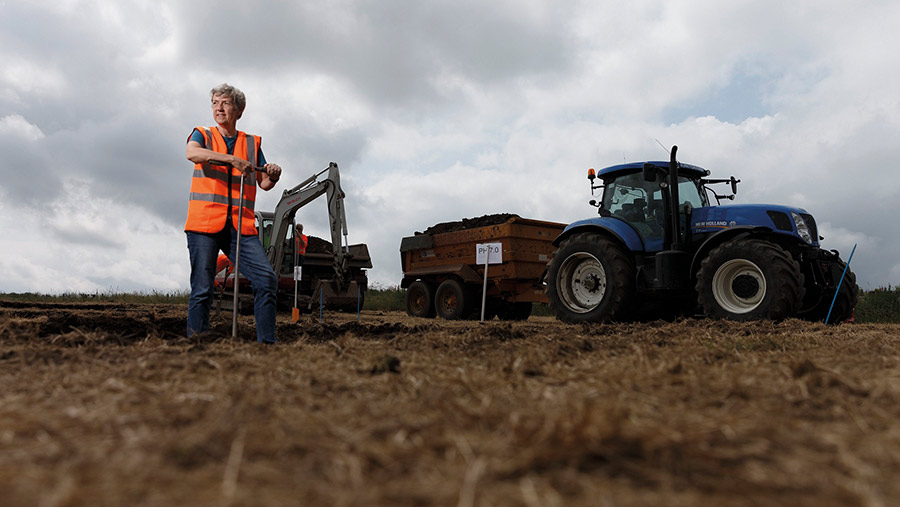Aberdeen field moved to preserve soil management trial
 Professor Christine Watson at the Woodlands Field site © SRUC
Professor Christine Watson at the Woodlands Field site © SRUC A whole field on the edge of Aberdeen is being dug up and transported a mile along the road to preserve its wide range of acid and alkaline soils which have provided key scientific data for 60 years.
Some 450t of soil is being taken by tractor and trailer from the Woodlands Field at Craibstone to a prepared site nearby to “preserve the unique historical legacy of the soil’s management”.
The soil will be used for research into the relationships between acidity, carbon and nutrient dynamics, and help design farming systems with lower greenhouse gas emissions. Operated by Scotland’s Rural College (SRUC), it has been home to a pH gradient rotational experiment since 1961.
See also: How the new Arable Soils Standard could help fill the BPS gap
However, with the Woodlands Field site earmarked for housing, soils from the site are being transferred to another nearby field at Ashtown, owned by the University of Aberdeen, and the two institutions have joined together to run the new site.
Climate change
Christine Watson from SRUC, who is leading the project, says the move will allow work to address critical issues such as climate change, carbon sequestration, novel crops and alternative inputs.
“The partnership with the University of Aberdeen brings together a strong team of plant and soil scientists with the capacity to bring national and international research funding to this new experimental platform,” says Prof Watson.
The original field maintained soils at different pH levels from 4.5 (very acid) to 7.5 (alkaline), to investigate how soils, plants and microbes work together to affect productivity.
Paul Hallett, who co-ordinates MSc soil science at the University of Aberdeen, says the academic institution’s partnership with the SRUC will benefit its teaching and research.
“From the climate emergency to the threats of soil degradation on food security, this revamp of SRUC’s classic field experiments provides an excellent resource on our doorstep to help tackle these challenges,” says Prof Hallett.
The two institutions have created the Aberdeen Cropping Systems Experimental platform, which not only secures the legacy of the Woodlands Field long-term experiments, but has the potential to reinvigorate cropping systems research in the north-east of Scotland.
